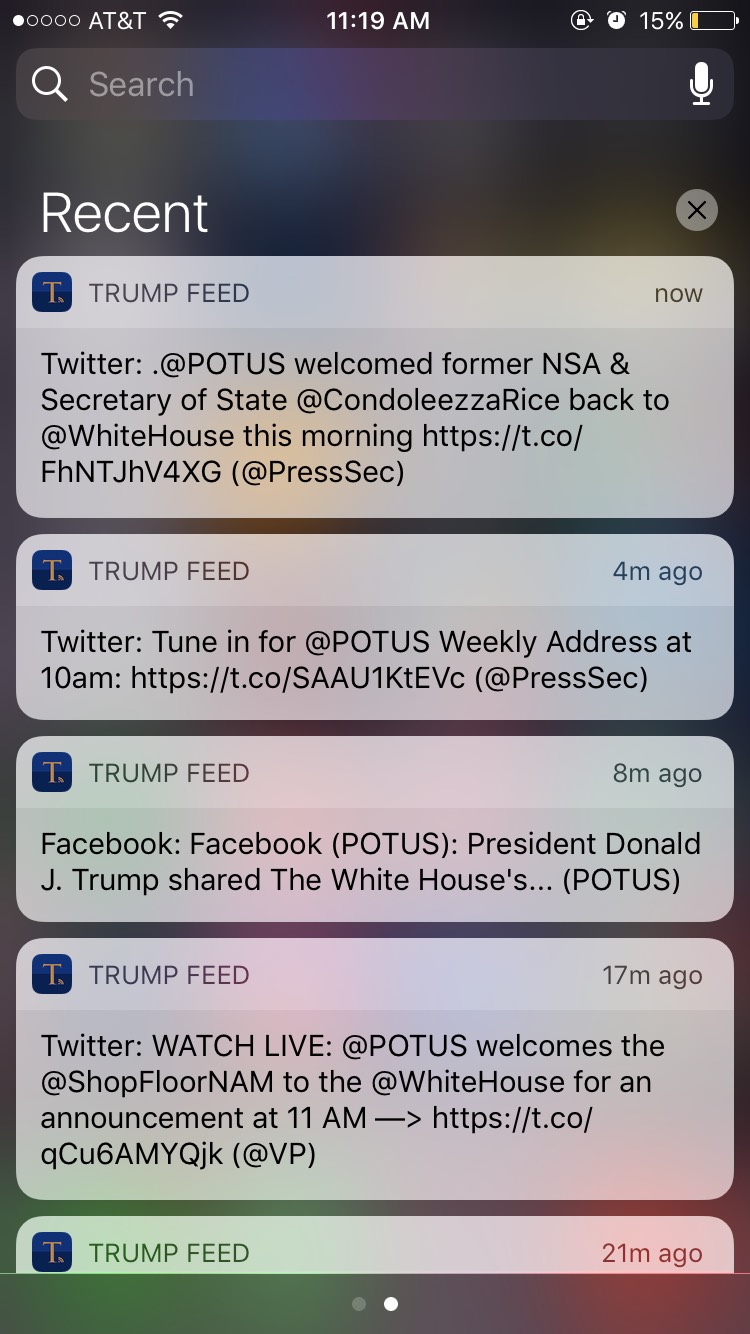
“Back in November during the election, I was crunching some numbers and somewhat confidently, like many of us in the media, decided, it’s in the bag, everyone go to sleep by 9 p.m. I was wrong. We were all wrong,” Bill Frischling, then a VP and an entrepreneur-in-residence at U.S. News & World Report, recalled. “Like most nerdy people, being wrong doesn’t bother you, but understanding why you were wrong bothers you.”
Fake news, filter bubbles, and the media elite’s inability to write for underserved communities were all tossed around as reasons and excuses, and Frischling, who found himself particularly unsettled by the influence of fake news and conspiracy sites, settled on tackling a better way to offer up primary sources to researchers and reporters and the interested public.
“How do you counter fake news? I latched onto primary sources. If you hear and see what people have said directly, in their whole context, then they can’t say you’re out of context,” Frischling said. “But it’s really not easy to search for primary material.”
Frischling’s solution turned into Factba.se, which is an easily searchable trove of virtually every single communication that comes from Donald Trump himself and from the White House, including official Trump campaign policy papers, the official White House schedule, official social media posts, and of course, @realdonaldtrump tweets. Here’s what you get, for instance, when you search “failing”:

There’s also a $0.99 iPhone app Trump Feed, which collects, in real time, every single missive from the Trump White House, including deleted tweets — and whether they were more likely sent out by Trump, or by his staff. (You can also get push notifications every time anything is posted, a feature I can’t recommend turning on if you aren’t covering the White House’s activities.) Now the database also includes speech transcripts (including the president’s weekly video address) with sentiment analysis and extensive keyword tagging.
“Large news organizations like CNN, The New York Times, the AP, and The Washington Post are consistently in the top ten domains in terms of traffic to Factba.se,” according to Frischling. The average time spent on the database has hovered around 20 to 30 minutes, suggesting that users might be actually watching the videos and reading the policy documents they came to search for.
Frischling said he’s open to working with any other organization that is collecting documents and videos in this space (“for instance, we have a screenshot of every Trump tweet…including deleted ones from July forward for archival purposes. If someone needs it, I’m happy to share our s3 repo”). The Internet Archive, for instance, has also built out a factchecked library of every time Trump said anything on video. Frischling has since left U.S. News to develop the tech behind Factba.se full time. The Trump database is the free, public-service-y face of a much larger business that will be selling the search tools initially developed for the Trump database, expanded beyond just Trump-related communications. (The umbrella company for all this work is CantyMedia, which has operated other projects like Weatherba.se and Geoba.se. Frischling’s wife Jennifer Canty and his brother are the other principals at the company.)
Frischling has since left U.S. News to develop the tech behind Factba.se full time. The Trump database is the free, public-service-y face of a much larger business that will be selling the search tools initially developed for the Trump database, expanded beyond just Trump-related communications. (The umbrella company for all this work is CantyMedia, which has operated other projects like Weatherba.se and Geoba.se. Frischling’s wife Jennifer Canty and his brother are the other principals at the company.)
“Factba.se, for lack of a better term, is the mission. I’m not trying to make money. Even the $0.99 app is just barely service costs,” Frischling said. “The company side is the search platform, which lets you take in anything — video, documents, audio — shovel it in, and it can transcribe speech, pull out keywords, figures out who’s in images, analyzes emotions.
“I found when I was showing this around to people, and people in the TV industry especially, their brains exploded. What I had put together for video search was beyond what they were using internally,” he added. “That was when I started thinking, this can maybe grow into something else.”